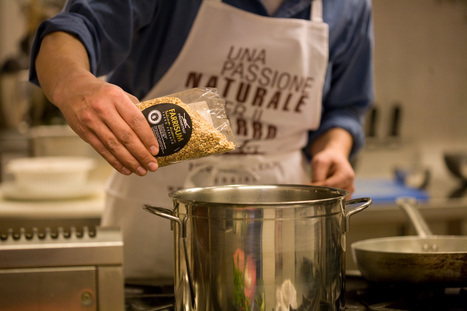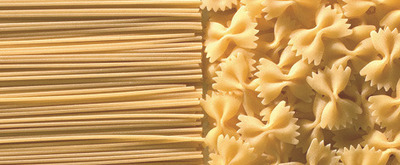Prometeo is an Italian factory that since 1991 has processed cereals and legumes produced by the organic farmers of central Italy. The production of hulled wheats is particularly focused on emmer, Triticum dicoccum, which is the predominant species throughout Italy
Prometeo is placed in Urbino, in the North of the Marche Region, central-eastern Italy, in an environment deeply linked to the traditions of central Italy. The factory provides its suppliers the seeds for landraces, checks fields and assists the farmers during growing, and organizes the storage and dispatch of the product. Prometeo selects its suppliers according to the production area, giving priority to high hill and mountain farms, whose yield is limited for quantity, but of superior quality.
The organic products are controlled and certified along the chain production steps (from producer to consumer), by the IMC (the Mediterranean Certification Institute). First, the raw material (hulled grains) is carefully cleaned and de-hulled using appropriate equipment to obtain whole (integral) kernels (farro intero). Then, a pearling process applied to produce semi-pearl and pearl grains (farrisum). The breaking of kernels is another process to obtain "tritello" (spezzato) which is the oldest use of emmer. The semi-processed products are sold to the wholesalers or submitted to further processing (milling, pasta making, blowing) carried out by Prometeo on behalf of external partner companies, carefully chosen and subject to the IMC controls relating to organic products.
Via Mariano Pallottini



 Your new post is loading...
Your new post is loading...








